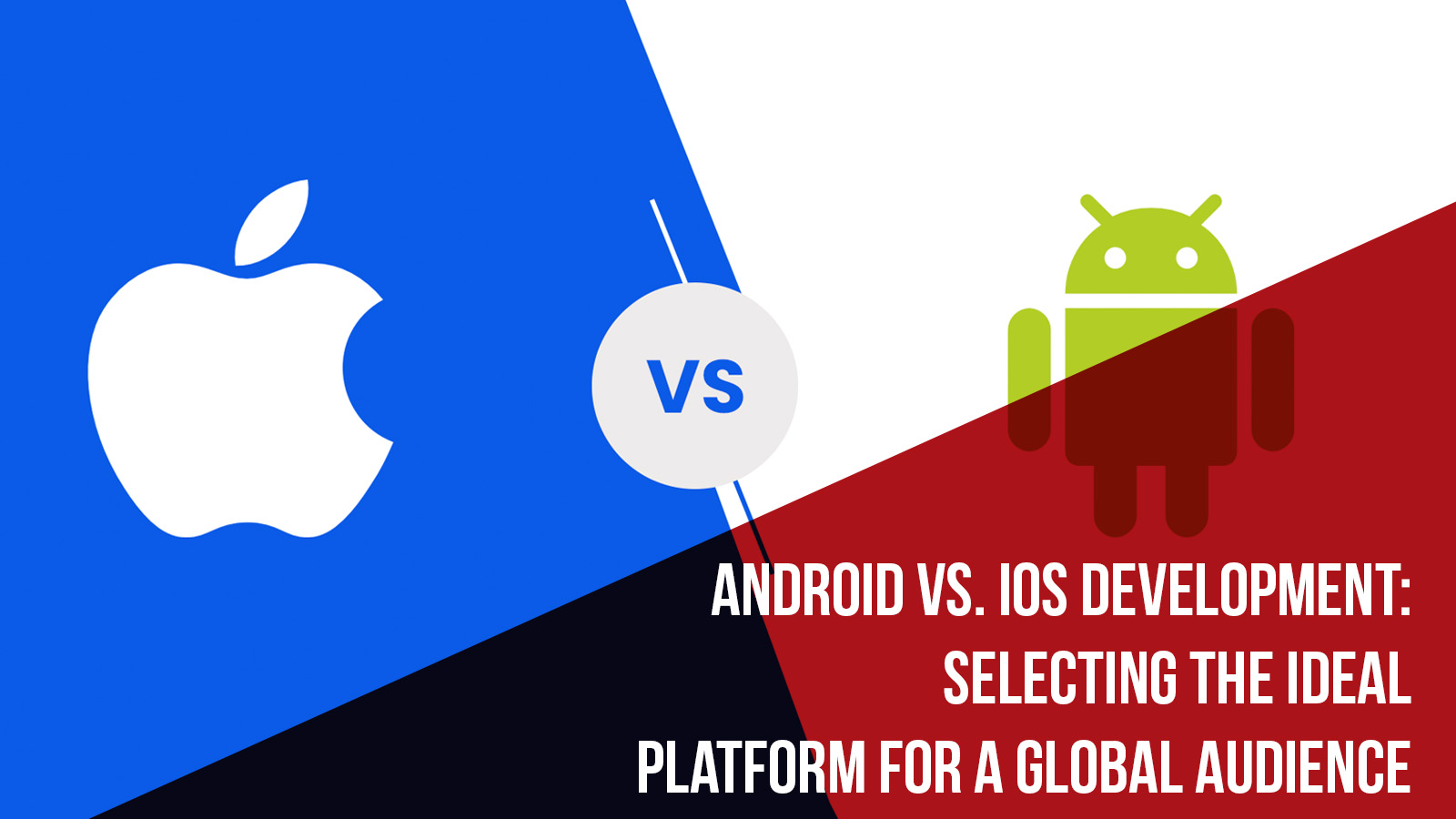Android vs. iOS Development
Mobile app development is a continuously evolving industry. Therefore, choosing the right platform is a critical decision that can significantly impact the success of your application. For developers, the debate centers around Android and iOS – the two giants dominating the mobile operating system market. Each platform comes with unique strengths and considerations, making the decision akin to choosing between two equally promising paths.
In this blog post, we will delve into Android and iOS development, helping you navigate the decision-making process and select the ideal platform for a global audience.
Market Share: Understanding the Reach
Before we start, it’s essential to look into the market share dynamics of Android and iOS. According to recent statistics, Android boasts a substantial global market share, consistently surpassing iOS. As of the latest data, Android holds over 70% of the worldwide market, while iOS captures a commendable but comparatively smaller share of around 28%. This stark contrast emphasizes the large volume of Android users globally, making it a compelling choice for developers aiming to reach a broader audience.\
Development Environment: The Android Advantage
One of the primary considerations for developers is the development environment each platform offers. Android development is characterized by its open-source nature, providing developers with a more flexible and customizable framework. Android Studio, the official integrated development environment (IDE) for Android, is known for robust tools and support for various programming languages, including Java and Kotlin.
On the other hand, iOS development is centered around Xcode, Apple’s official IDE. While Xcode is known for its user-friendly interface and seamless integration with other Apple products, it is more restrictive compared to Android Studio. Apple’s closed ecosystem, while ensuring a consistent user experience, may limit developers in terms of customization and flexibility.
Fragmentation vs. Uniformity: The Testing Dilemma
One of the challenges unique to Android development is platform fragmentation. The diverse range of devices running on Android causes variations in screen sizes, resolutions, and hardware capabilities. This diversity makes thorough testing a necessity to ensure a seamless user experience across all devices.
On the contrary, iOS, with its closed ecosystem and limited device models, offers a more uniform testing environment. Developers can design and test their applications with confidence, knowing that the app will run consistently across a relatively small range of devices. This uniformity simplifies the testing process, saving developers time and resources.
Monetization Models: Exploring Revenue Opportunities
For developers, monetization is a crucial aspect of the app development journey. Both Android and iOS offer diverse monetization models, but the dynamics of each platform differ. Android, with its larger user base, presents an extensive audience for ad-based monetization strategies. Ad-supported apps can potentially generate significant revenue by reaching a vast number of users.
iOS, on the other hand, has a user base known for higher purchasing power. This characteristic makes iOS users more inclined towards paid apps and in-app purchases. Developers targeting a premium audience may find iOS to be a more lucrative platform for monetization through direct purchases and subscriptions.
Global Considerations: Localization and Cultural Sensitivity
As the world becomes increasingly interconnected, developers must consider the global nature of their audience. Android’s dominance in emerging markets and its affordability factor contribute to its popularity in diverse cultural settings. Developers aiming for a truly global reach should prioritize localization efforts, ensuring that their app is not only translated but also culturally sensitive to different regions.
iOS, often associated with a more affluent user base, may be perceived as an attractive choice for apps with a premium or luxury focus. However, it’s essential to recognize that cultural preferences vary, and success in one region does not guarantee the same in another. Tailoring your app to resonate with the cultural aspects of your target audience is crucial for global success, regardless of the chosen platform.
Conclusion: Navigating the Crossroads
In the Android vs. iOS development dilemma, there is no one-size-fits-all answer. The ideal platform depends on various factors, including your target audience, development preferences, and monetization goals. Android’s vast market share and flexible development environment make it a compelling choice for those aiming for quantity and customization. Conversely, iOS’s uniformity, profitable monetization models, and affluent user base position it as an attractive option for developers prioritizing quality and premium experiences.
Ultimately, the decision should align with your app’s unique value proposition and your strategic goals. It’s worth noting that some developers opt for a cross-platform approach, leveraging frameworks like Flutter or React Native to build apps that run seamlessly on both Android and iOS devices. Whichever path you choose, understanding the nuances of each platform is the first step towards creating a successful and impactful mobile application on your app’s journey.
Frequently Asked Questions (FAQs)
What factors should I consider when choosing between Android and iOS development for my app?
Several factors influence this decision. Consider your target audience, budget, desired features, and development complexity. Android has a broader global reach, while iOS users often spend more on app purchases.
Is Android or iOS development more cost-effective?
The cost depends on various factors. Android development can be more affordable due to diverse device compatibility, but iOS users are often more willing to pay for apps, potentially balancing the investment.
Which platform has a larger global user base?
Android boasts a larger global user base, covering a wide range of demographics. iOS, while having a more concentrated user base, is popular in affluent markets, making it lucrative for certain app types.
Are there significant differences in the development process for Android and iOS?
Yes, the development processes differ. Android uses Java or Kotlin, providing more flexibility. iOS uses Swift or Objective-C. Consider the user interface guidelines, development tools, and testing processes specific to each platform.
How long does it take to develop an app for Android compared to iOS?
Development time varies based on factors like complexity and features. Android development might take longer due to the need for extensive testing on diverse devices, while iOS development is often more streamlined.
Do app updates roll out simultaneously on Android and iOS?
Not necessarily. App updates require separate development and approval processes for each platform. Coordination is crucial to maintain feature parity, but the release timing may differ.
Which platform provides better monetization opportunities for developers?
iOS users generally spend more on app purchases and in-app transactions. If monetization is a priority, iOS might be more lucrative. However, Android’s larger user base can also yield significant revenue, especially in ad-supported models.
Does the choice between Android and iOS impact the app’s design?
Yes, each platform has specific design guidelines. Android follows Material Design principles, emphasizing a clean, intuitive interface. iOS adheres to Human Interface Guidelines, focusing on simplicity and consistency. Tailoring the design to each platform enhances user experience.
Can I develop an app that works seamlessly on both Android and iOS?
Yes, it’s possible through cross-platform frameworks like React Native or Flutter. These frameworks allow developers to write code once and deploy it on both platforms, reducing development time and effort. However, some features might require platform-specific customization.
How does app security differ between Android and iOS?
Both platforms prioritize security, but their approaches differ. iOS has a closed ecosystem, offering stricter app review processes. Android allows more flexibility but encourages developers to implement robust security measures. The choice depends on your app’s specific security requirements.








